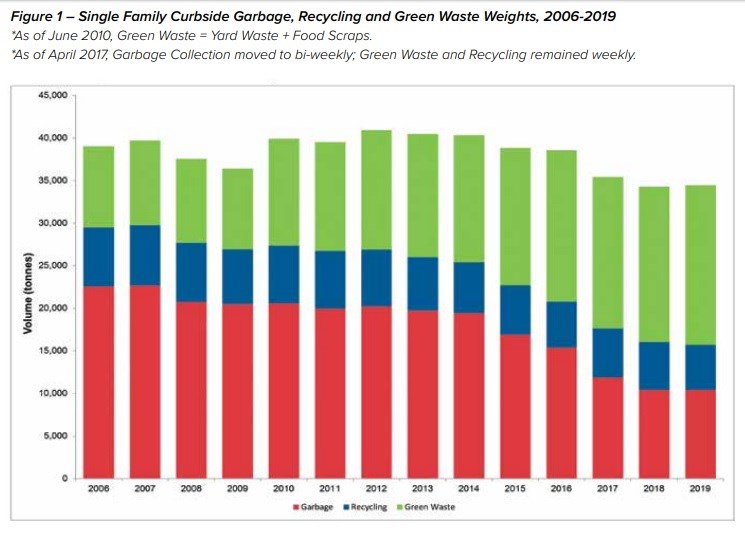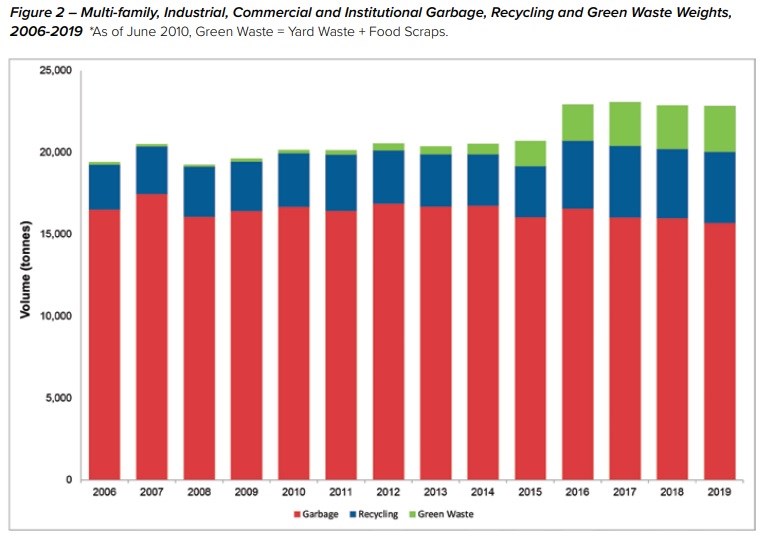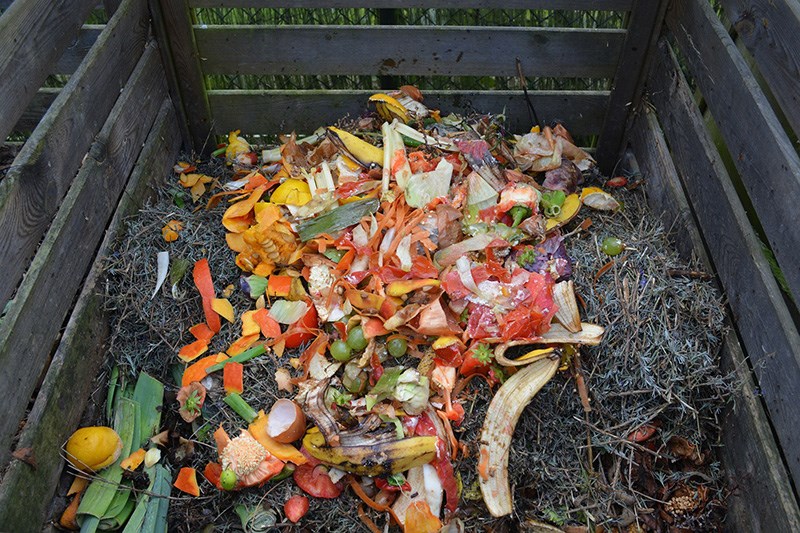For the first time, green waste has surpassed garbage as the largest portion of Burnaby’s waste program.
Yard trimmings and food scraps constituted 41% of all waste processed by the city, according to Burnaby’s solid waste and recycling annual report for 2019. Presented to council in June, the report notes garbage made up 40% of the city’s waste, while recycling made up the remaining 19%.
In all, 66,724 tonnes of waste were generated by Burnaby residents and businesses last year, according to the report.

Among single-family homes, the city has seen a drop in total waste in recent years to just under 35,000 tonnes, whereas between 2006 and 2016 the total waste weighed in fairly consistently at 40,000 tonnes. And green waste has steadily increased as a proportion of the total waste, from about a quarter of all waste in 2006 to about half in 2019.
Among multi-family, industrial, commercial and institutional properties, green waste has seen significant increases, but it remains a small portion of the overall waste. Garbage and recycling have consistently weighed in at a bit over 15,000 tonnes and a bit under 5,000 tonnes respectively. Green waste, on the other hand, has increased from next to nothing to about 3,000 tonnes.

This year, the city intends to roll out the green waste program to the remaining multi-family buildings and civic facilities, according to the annual report.
A city staff report notes other important achievements, including beginning to collect flexible plastics such as bubble wrap and chip bags.
The city also launched a new program last year to provide additional medical waste bins to residents who need them, free of charge.
This year, the city will be focusing on a feasibility study of building a city-owned green waste processing facility, among other initiatives, according to the annual report. The facility could be a way to reduce fees related to green waste collection and potentially reduce greenhouse-gas emissions.
The city also intends to conduct an audit to set priorities for contamination and recycling programs.



